Exploring the Benefits of Automation on WhatsApp Business API for the Healthcare Industry
Case Studies Conversational Leadership
Apurva Sharma
Published on 06 Mar 2023 11 min Read
11 min Read
Highlights

WhatsApp is one of the most popular messaging apps in the world, with over 2 billion active users. The app has become a popular communication tool for individuals and businesses alike, including those in the healthcare industry. With the introduction of WhatsApp Business API, healthcare organizations can leverage the app’s features to improve patient engagement, streamline communication, and reduce operational costs.
One of the most significant benefits of using WhatsApp Business API is automation, which allows healthcare organizations to send automated messages to patients, staff, and other stakeholders. In this blog post, we will explore the benefits of automation on WhatsApp Business API for the healthcare industry and how it can transform patient care.
In this blog post, we will explore the benefits of automation on WhatsApp Business API for the healthcare industry.
Improved Patient Engagement
One of the main benefits of automation on WhatsApp Business API is improved patient engagement. Healthcare organizations can use WhatsApp to send appointment reminders, follow-up messages, and other important information to patients. With automation, these messages can be sent automatically, reducing the need for manual intervention and improving the patient experience.
For example, a healthcare organization could set up an automated message to remind patients of their upcoming appointments. The message could include the date, time, and location of the appointment, as well as any instructions or preparation requirements. By sending these messages automatically, the organization can reduce the likelihood of no-shows, which can be costly and disruptive.
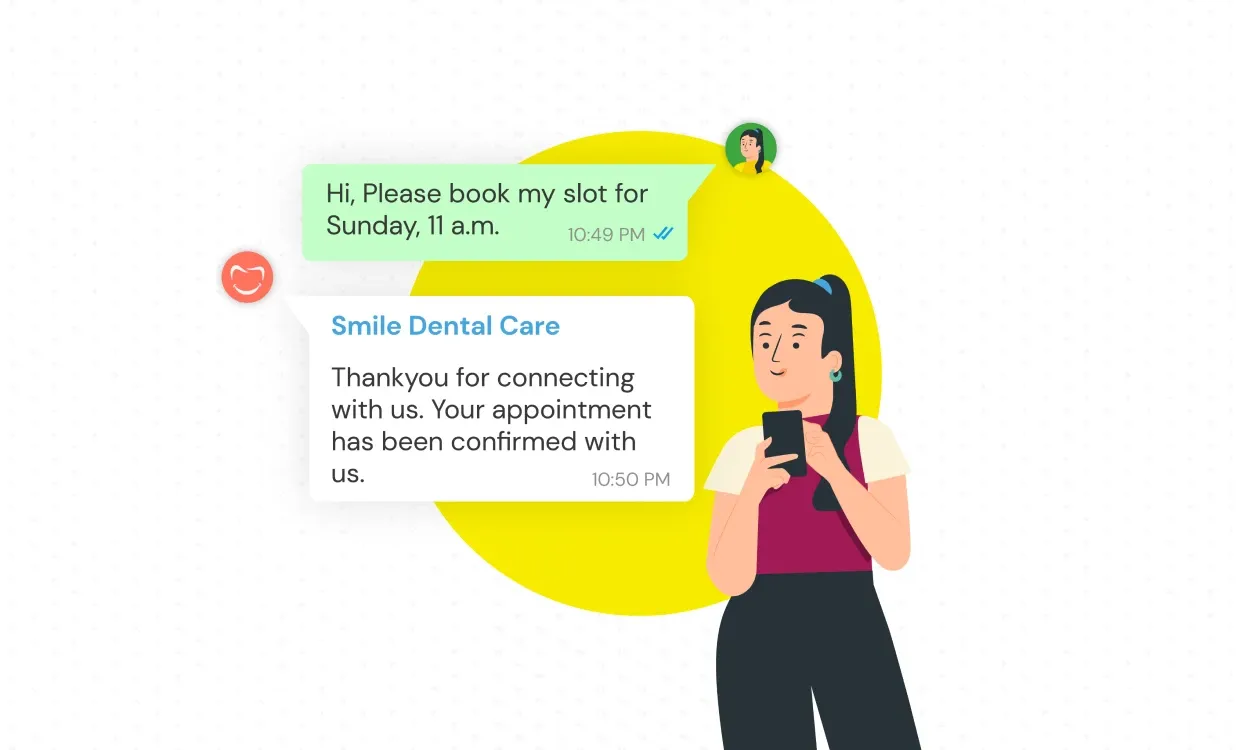
In addition to appointment reminders, healthcare organizations can use automation on WhatsApp to send educational resources to patients. For example, a hospital could set up an automated message to send patients information on healthy eating habits or tips for managing a chronic condition. By providing this information on WhatsApp, patients can access it easily and at their convenience, improving their overall engagement with their healthcare provider.
Streamlined Communication
Another benefit of automation on WhatsApp Business API is streamlined communication. Healthcare organizations can use WhatsApp to communicate with patients, staff, and other stakeholders in real time. By automating certain messages, organizations can reduce the need for manual intervention and improve the efficiency of their communication processes.
For example, a hospital could set up an automated message to notify staff of an upcoming meeting or training session. The message could include the date, time, and location of the event, as well as any materials or instructions that need to be reviewed beforehand. By sending these messages automatically, the hospital can ensure that all staff members are informed and prepared, without the need for manual reminders or follow-ups.
Similarly, healthcare organizations can use automation on WhatsApp to communicate with patients in real-time. For example, a doctor’s office could set up an automated message to notify patients of delays or changes to their appointments. By sending these messages automatically, the office can keep patients informed and reduce frustration or confusion.
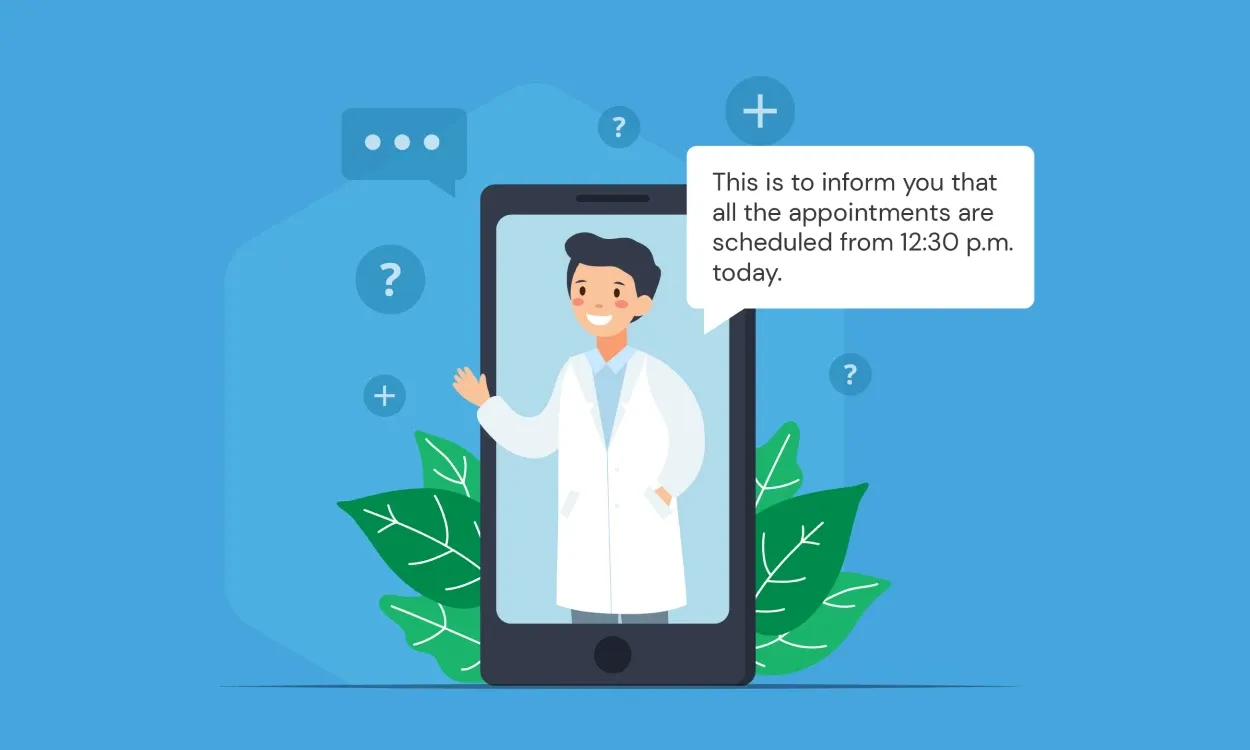
Reduced Operational Costs
Another benefit of automation on WhatsApp Business API is reduced operational costs. By automating certain messages, healthcare organizations can reduce the need for manual intervention and improve the efficiency of their communication processes. This can help organizations save time and money, which can be reinvested in patient care and other important initiatives.
For example, a hospital could set up an automated message to notify staff of an upcoming training session. By sending the message automatically, the hospital can reduce the need for manual reminders or follow-ups, which can be time-consuming and expensive. Similarly, a doctor’s office could set up an automated message to confirm appointments with patients. By reducing the need for manual confirmation calls, the office can save time and reduce operational costs.
Aesthetics of Data Access
Access to individual medical records is a critical aspect of patient care, enabling healthcare providers to make informed decisions and provide appropriate treatment. However, accessing medical records can be a cumbersome process, requiring patients to fill out forms, provide identification, and wait for records to be retrieved.
WhatsApp Business API offers an innovative solution to this problem, enabling healthcare organizations to automate the process of accessing individual medical records. By leveraging the benefits of WhatCX’s automated forms, healthcare organizations can provide patients with a quick and convenient way to access their medical records, reducing the burden on staff and improving patient satisfaction.
Automation in WhatsApp Business API enables patients to access their medical records quickly and conveniently, without the need for lengthy forms or waiting times. This convenience can improve patient satisfaction and foster better patient-provider relationships.
Ease of online consultation
Automation in WhatsApp Business API enables patients to schedule appointments, share medical information, and receive diagnoses online, without the need for physical visits to healthcare facilities. This convenience can improve patient satisfaction and foster better patient-provider relationships.
It can increase the efficiency of online consultations by automating certain tasks, such as collecting patient data, scheduling appointments, and delivering diagnoses. This can free up healthcare providers to focus on more complex tasks, improving overall efficiency.
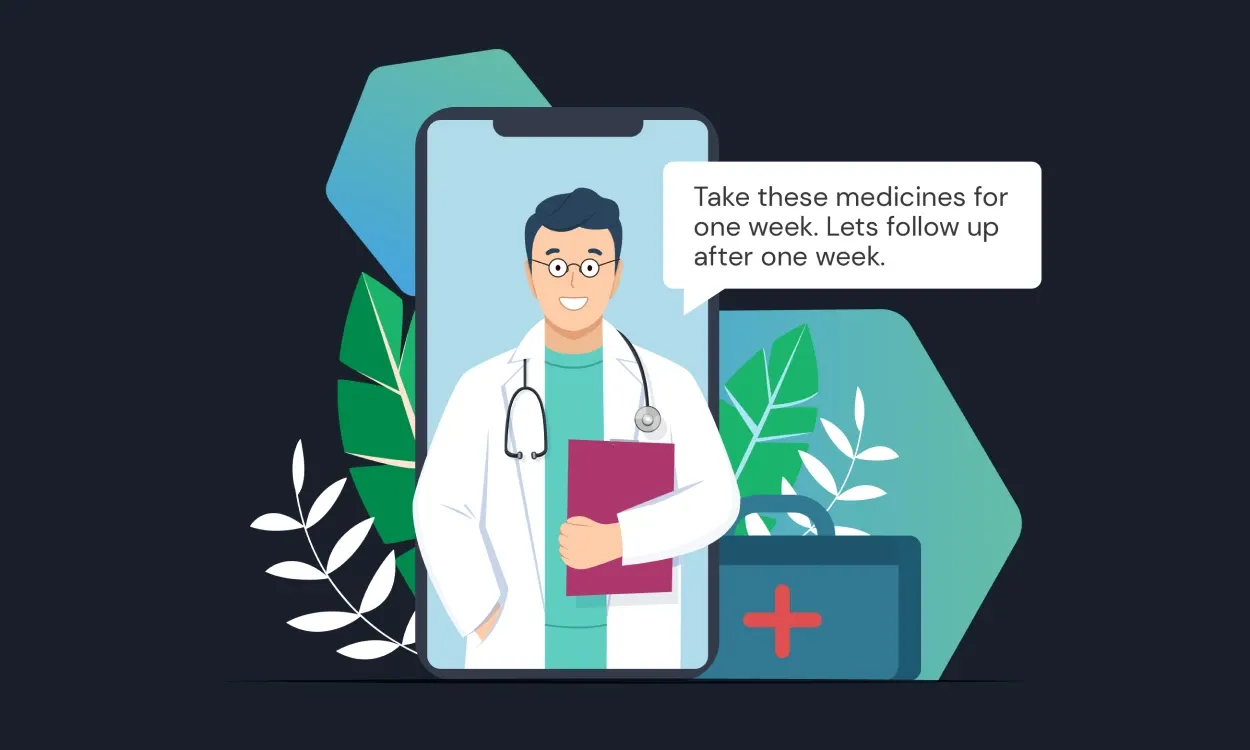
Automation in WhatsApp Business API can improve the accuracy of online consultations by reducing the risk of human error. By automating the process of collecting and analyzing patient data, healthcare providers can ensure that diagnoses are accurate and tailored to individual patient needs.
How to automate Healthcare conversations?
WhatsApp automation can provide numerous benefits for the healthcare industry, from improved patient engagement to streamlined communication and reduced operational costs. Here are some ways healthcare organizations can use WhatsApp automation to improve patient care:
- Appointment Reminders: Healthcare organizations can use automation on WhatsApp to send appointment reminders to patients automatically. These reminders can include the date, time, and location of the appointment, as well as any instructions or preparation requirements. By sending these messages automatically, healthcare organizations can reduce the likelihood of no-shows, which can be costly and disruptive.
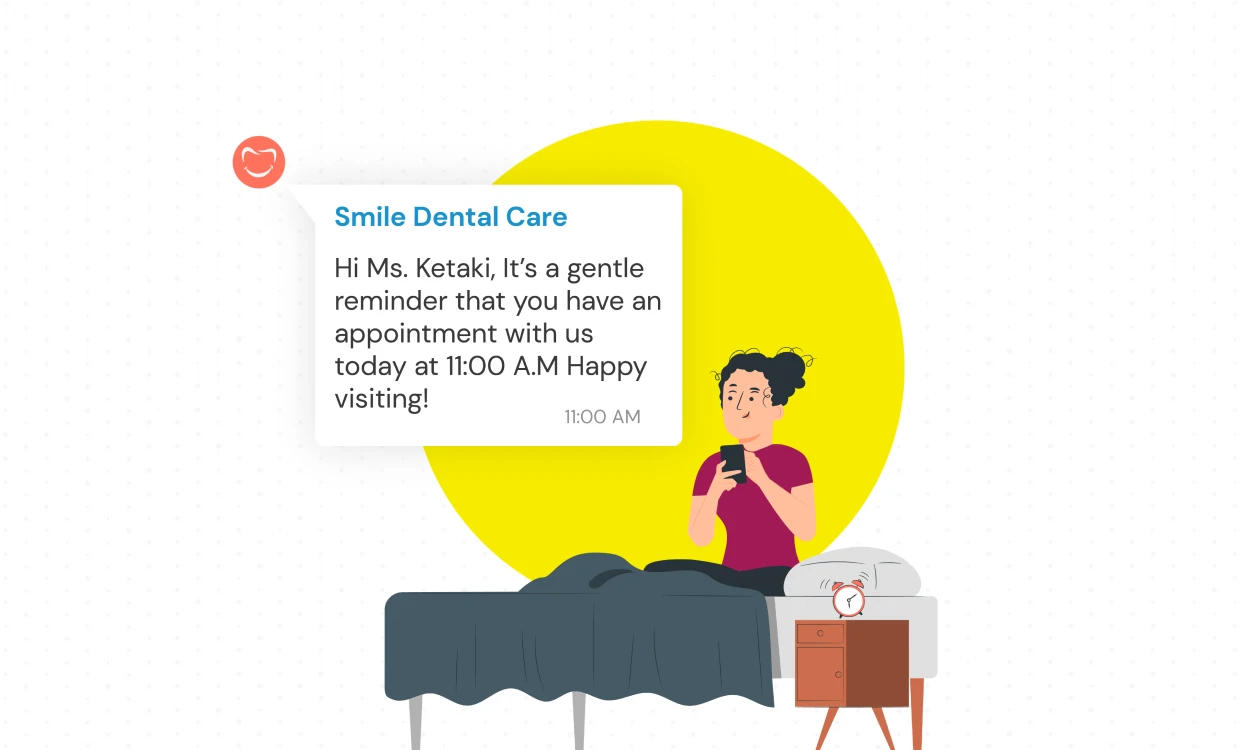
- Follow-up Messages: Healthcare organizations can use automation on WhatsApp to send follow-up messages to patients after their appointments. These messages can include information on post-care instructions, medication reminders, and answers to frequently asked questions. By sending these messages automatically, healthcare organizations can improve patient engagement and ensure that patients receive the information they need to manage their health effectively.
- Educational Resources: Healthcare organizations can use automation on WhatsApp to send educational resources to patients. These resources can include information on healthy eating habits, tips for managing chronic conditions, and other health-related topics. By providing this information on WhatsApp, patients can access it easily and at their convenience, improving their overall engagement with their healthcare provider.
- Staff Notifications: Healthcare organizations can use automation on WhatsApp to notify staff of upcoming meetings, training sessions, and other events. By sending these messages automatically, healthcare organizations can ensure that all staff members are informed and prepared, without the need for manual reminders or follow-ups.
- Patient Surveys: Healthcare organizations can use automation on WhatsApp to send patient satisfaction surveys after appointments. These surveys can provide valuable feedback on the patient experience and help healthcare organizations improve their services.
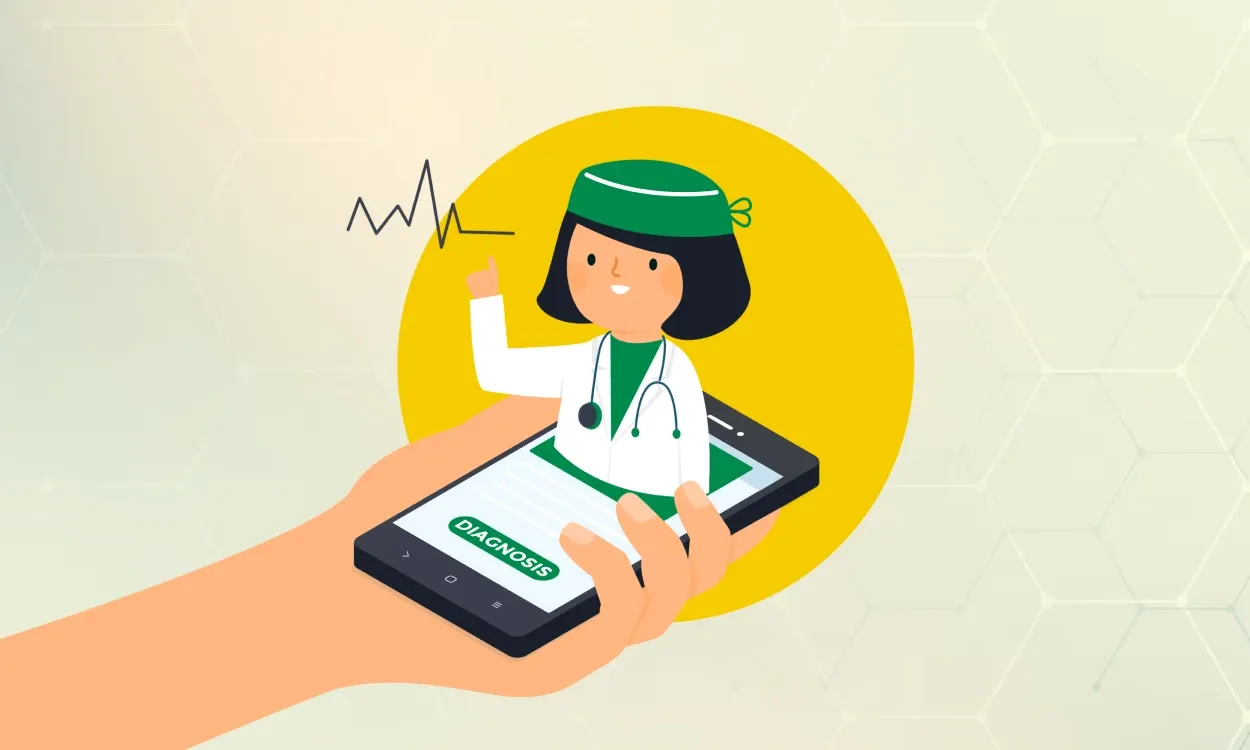
Create a No-Code Chatbot for Healthcare Industry
No-code chatbots can be an excellent way for healthcare organizations to improve patient engagement, streamline communication, and reduce operational costs. With no-code chatbot platforms, healthcare organizations can easily create chatbots that can automate a wide range of tasks, from appointment scheduling and prescription refills to answering frequently asked questions and providing educational resources.
Here are some benefits of using no-code chatbots in the healthcare industry:
- Direct communication channel: No-code chatbots can improve patient engagement by providing patients with the information they need when they need it. By answering questions and providing resources, chatbots can help patients manage their health more effectively, improving outcomes and overall patient satisfaction.
- Boost efficiency: No-code chatbots can streamline communication between patients and healthcare providers by providing patients with a quick and easy way to access information and services. By automating certain tasks, chatbots can reduce the need for manual intervention and improve the efficiency of communication processes.
- Save time: No-code chatbots can help healthcare organizations reduce operational costs by automating certain tasks, such as appointment scheduling and prescription refills. By reducing the need for manual intervention, healthcare organizations can improve efficiency and reduce costs.
- Improved Data Collection: No-code chatbots can collect data on patient preferences, behavior, and outcomes, providing valuable insights that can inform decision-making and improve patient care.
Creating a no-code chatbot for the healthcare industry is relatively simple. Here are some steps you can follow:
- Choose a no-code chatbot platform that meets your needs and budget. WhatCX’s drag-and-drop builder lets you create a no-code chatbot with their Free Plan.
- Define the scope of the chatbot and identify the tasks you want it to automate.
- Develop a conversation flow that reflects the questions patients are likely to ask and the responses the chatbot will provide.
- Test the chatbot thoroughly to ensure that it is functioning correctly and providing accurate information.
- Launch the chatbot and monitor its performance to identify areas for improvement.
No-code chatbots can be an excellent way for healthcare organizations to improve patient engagement, streamline communication, and reduce operational costs. By providing patients with a quick and easy way to access information and services, healthcare organizations can improve patient satisfaction and outcomes, while also reducing the burden on staff.
Case Studies of Healthcare Businesses using WhatsApp API Automation
Several healthcare businesses have successfully implemented automation in WhatsApp Business API to enhance their operations and provide better patient care. Here are a few examples:
- MedGrocer – MedGrocer is a pharmacy that specializes in delivering medications to patients’ homes. The company uses WhatsApp Business API to streamline the ordering process, enabling patients to place orders and receive real-time updates on the status of their deliveries. MedGrocer also uses automation to provide customers with reminders when it is time to refill their prescriptions, ensuring that they never run out of necessary medications.
- Doctor on Demand – Doctor on Demand is an online healthcare platform that provides patients with virtual consultations with doctors, therapists, and psychiatrists. The platform uses WhatsApp Business API to enable patients to schedule appointments, receive automated reminders, and connect with healthcare providers via secure messaging. Doctor on Demand also uses automation to collect patient data and provide tailored recommendations for care.
- Apollo Hospitals – Apollo Hospitals is one of the largest healthcare providers in India, with more than 10,000 beds and over 70 hospitals across the country. The company uses WhatsApp Business API to enable patients to book appointments, receive test results, and access healthcare information from anywhere, at any time. Apollo Hospitals also uses automation to send out targeted health campaigns and educational resources to patients, improving overall health outcomes.
- Cigna – Cigna is a global health insurance provider that uses WhatsApp Business API to provide customers with real-time access to their health insurance policies, claims, and coverage information. Cigna also uses automation to collect customer feedback, track customer satisfaction, and provide personalized recommendations for improving health outcomes.
These case studies demonstrate the diverse ways in which healthcare businesses can leverage automation in WhatsApp Business API to enhance their operations and provide better patient care. By adopting this technology, healthcare providers can streamline their operations, improve patient access to care, and enhance patient satisfaction, ultimately leading to improved health outcomes for patients.
Automate your healthcare business conversations with WhatCX!
In conclusion, WhatsApp automation is a powerful tool that healthcare organizations can leverage to improve patient engagement, streamline communication, and reduce operational costs. With the introduction of WhatsApp Business API and the emergence of innovative solutions like WhatCX, healthcare organizations can now automate a wide range of messages, from appointment reminders and follow-up messages to educational resources and staff notifications.
By automating certain messages, healthcare organizations can reduce the need for manual intervention, improve the efficiency of their communication processes, and ultimately deliver better patient care. Moreover, by providing patients with the information they need when they need it, healthcare organizations can improve patient engagement and foster better patient-provider relationships.
As healthcare organizations continue to face pressure to improve efficiency and reduce costs, the adoption of automation on WhatsApp Business API is likely to increase. By leveraging the app’s features to automate certain messages, healthcare organizations can improve patient satisfaction, enhance communication processes, and ultimately transform patient care. WhatCX is a powerful solution that enables healthcare organizations to implement automation on WhatsApp easily, helping them to reap the benefits of this technology quickly and efficiently.
Make your WhatsApp conversations faster, automatic, and more effective with your team.
Recent Blogs
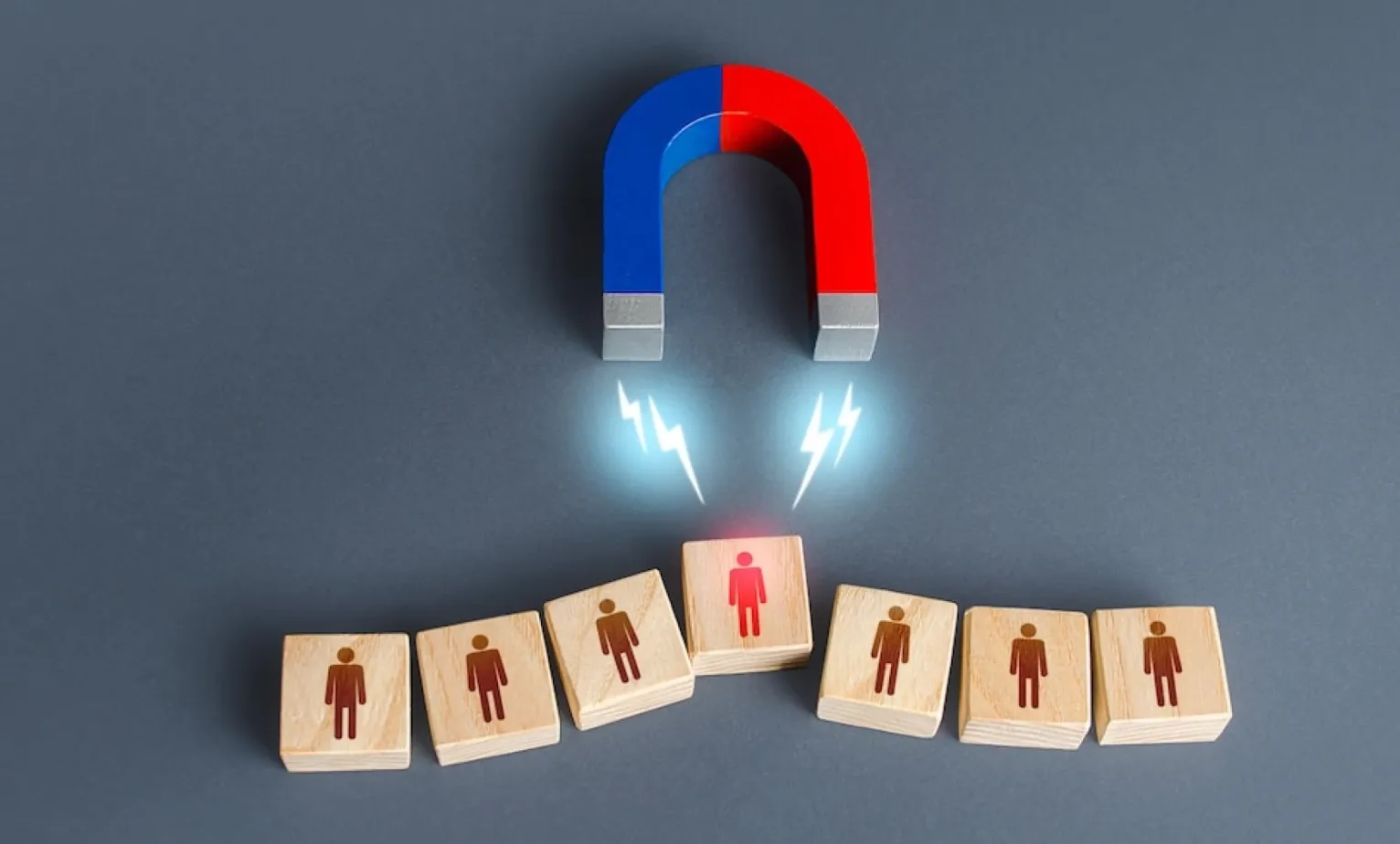
30-03-2023
How to Create an Effective Lead Generation Campaign on WhatsApp
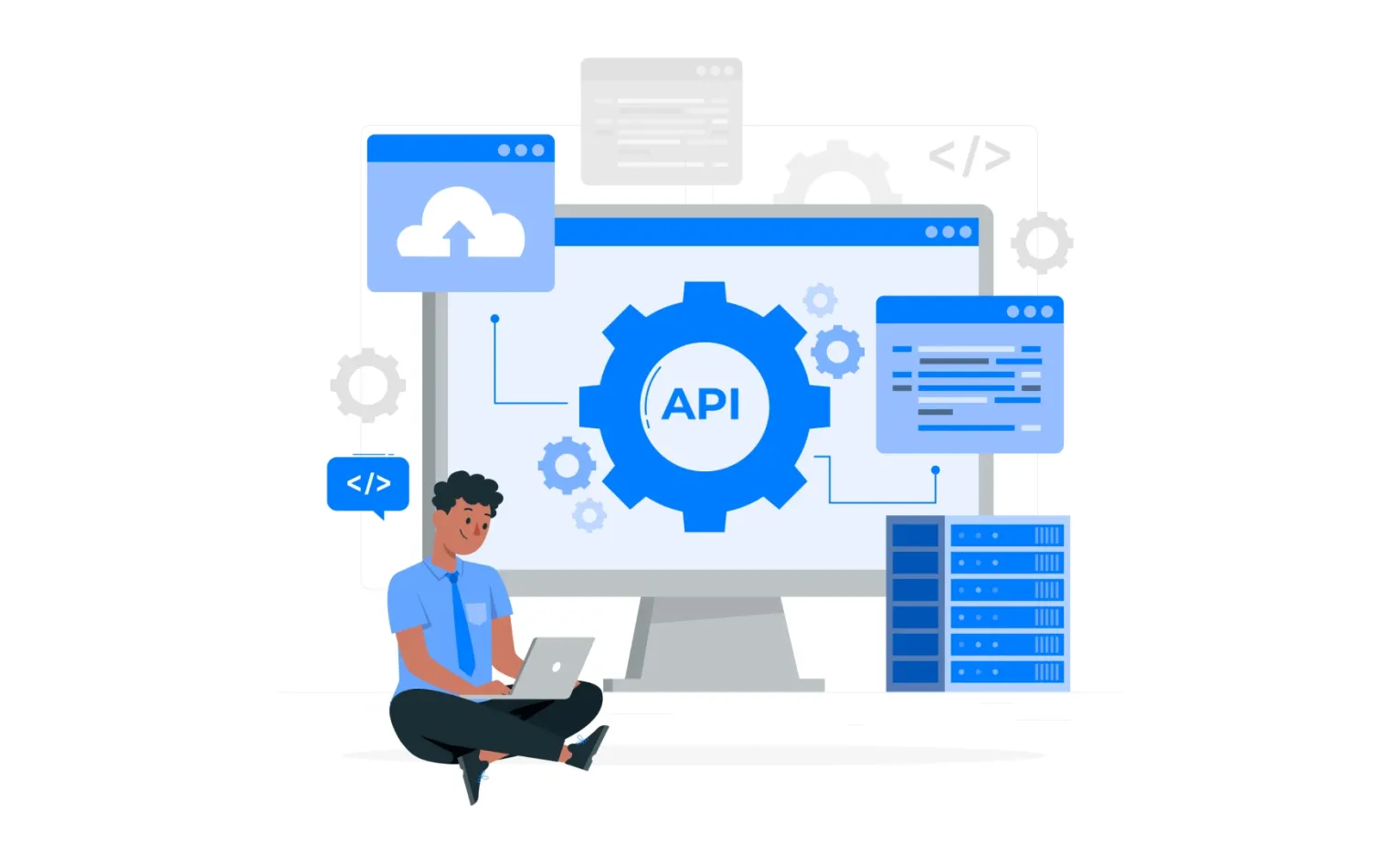
28-03-2023
What are the best WhatsApp Business API Providers? Find Out Now!

22-03-2023
How Stock broker companies use WhatsApp API to give insights into the portfolio to their ‘Customers’
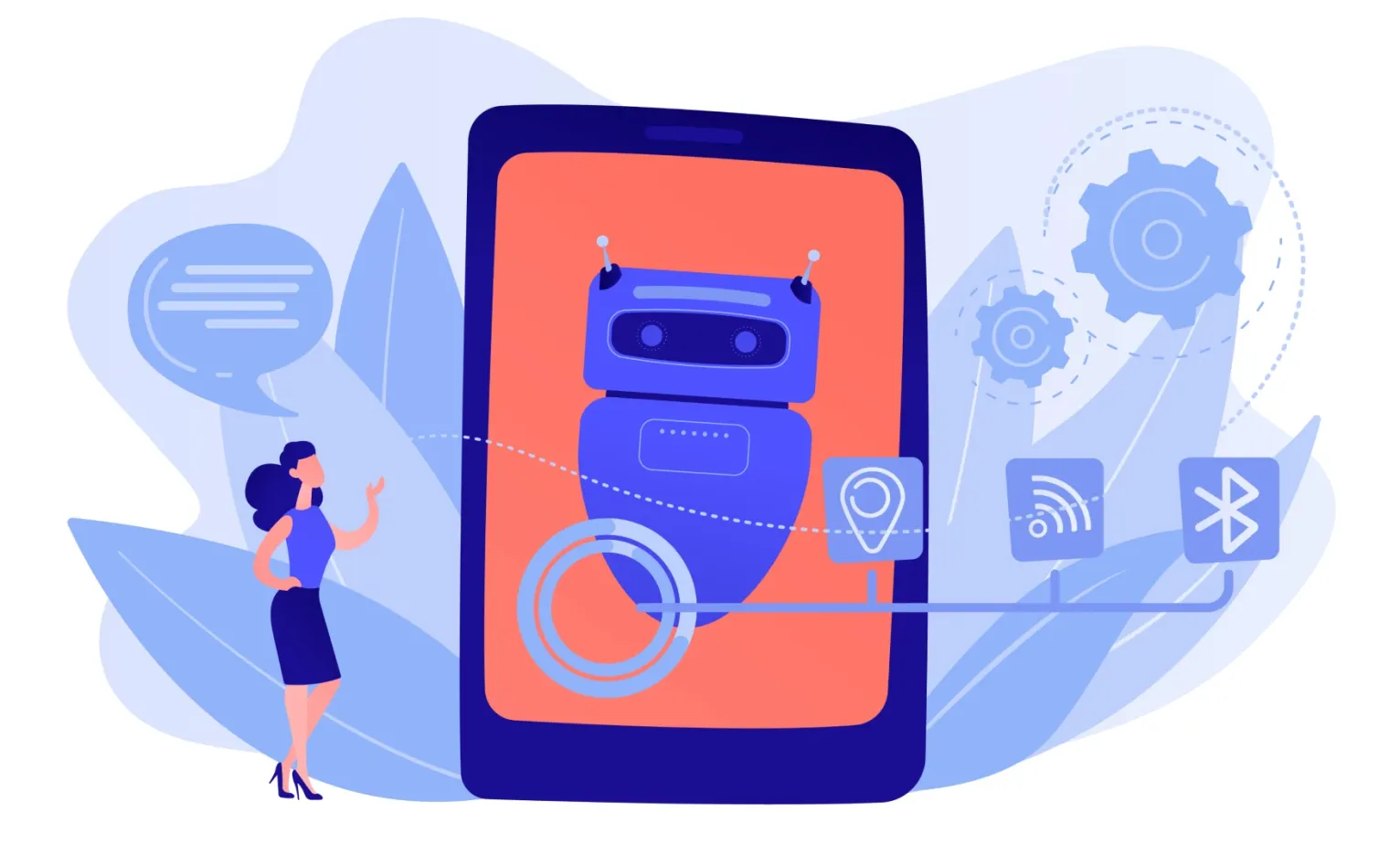
19-03-2023
Impact of Automation in WhatsApp API Across Industries: A Closer Look

13-03-2023
How can the manufacturing sector leverage automation in WhatsApp Business API to help achieve their business goals

10-03-2023
What Are the Benefits of Using WhatsApp Business API Human Chat for Handling Sensitive Data?
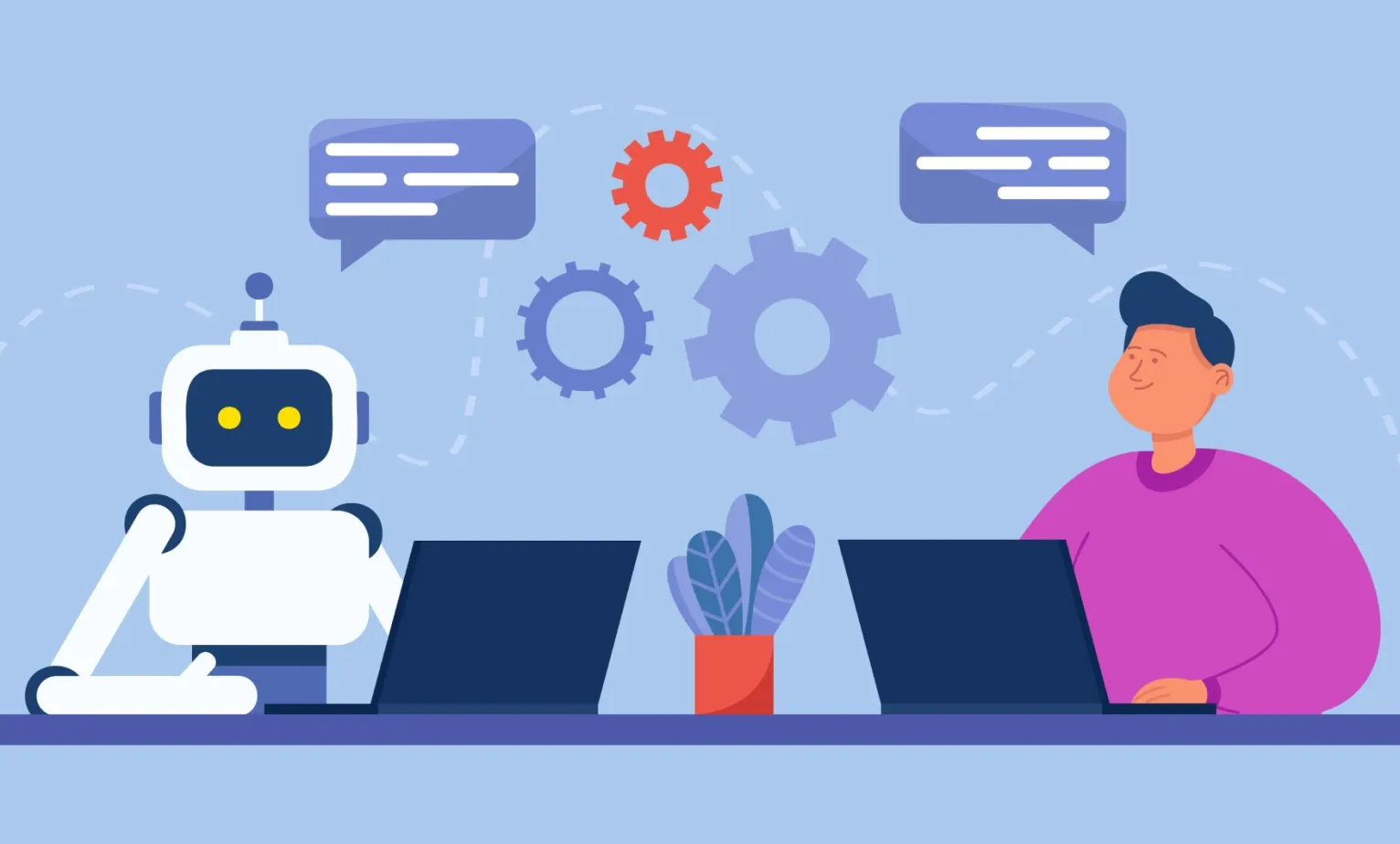
10-03-2023
Is WhatsApp Automation the Future of the Automotive Industry?

06-03-2023
Utilizing the Power of WhatsApp Automation for HR Processes

03-03-2023






